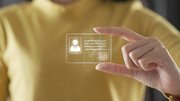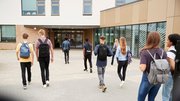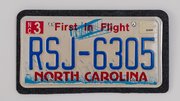Article
Airlines evaluating kiosk strategies
Most airlines are taking a close look at their kiosk systems now that the United States government has tightened security at airports.
March 17, 2002
The terrorist attacks on the United States on Sept. 11 may not signal the end of airport self-service kiosks, as North American-based airlines have developed a number of different strategies to integrate kiosks into new security regulations outlined by the Federal Aviation Administration (FAA).
Most airlines have decided to keep the systems in operation, though one carrier, Air Canada, has shut down its kiosk system for now.
The new FAA restrictions, which were instituted after four jetliners were hijacked and used in terrorist attacks on Sept. 11, do not directly ban self-service kiosks. Northwest Airlines, whose E-Service Centers are located at about 70 airports nationally, planned to keep its E-Service Centers operating when flight service resumed at the end of the week according to its Web site. A scan of corporate Web sites also revealed that Continental Airlines and Alaska Airlines also plan to keep their self-service kiosks in operation.
Continental Airlines, which had plans to expand its kiosk fleet from 332 to nearly 600 in the next year, said on its Web site that it would maintain its eService Center kiosk program, and that passengers with electronic tickets could use the kiosk to check in. Alaska Airlines, which has installed about 375 self-service kiosks since launching the service in 1996, informed travelers on its Web site that they could still access the airline's kiosk system.
On the other hand, Air Canada resumed operations on Sept. 13 but temporarily suspended its Express Check-in kiosk system.
American Airlines spokesperson Julia Bishop-Cross said on Sept. 14 that she was uncertain of the status of the airline's OneStop Self-Service kiosk program, but that American was looking into the matter.
"What I understand is we believe we can adapt our kiosks to make them conform to the new FAA rules," Bishop-Cross said. "But we'll know more later on."
American, which had two of its planes hijacked, launched its kiosk program this spring at nine U.S. airports, and added the service at John F. Kennedy International Airport in New York on Sept. 4.
The status of kiosk programs at two European-based airlines, Lufthansa and British Airways, was uncertain as of Sept. 14. German-based Lufthansa had yet to resume international flights to the United States as of that date and had no information on its Web site concerning its kiosk system. British Airways resumed travel between the U.K. and Canada on Sept. 14, but flights to the U.S. have not resumed and there was no information available on the status of its kiosk system.
New restrictions
The nation's airspace system was shut down for two days after the attacks. The FAA allowed a limited round of flights to resume on Sept. 13 with new security initiatives. Among the fresh restrictions was the prohibition of curbside check-in and off-premise baggage check-ins. In addition, flyers with electronic tickets are required to have documentation of the tickets, such as receipts, or they will be required to check in to obtain a paper ticket.
Secretary of Transportation Norman Mineta predicted it would take time for the nation's airways to return to normal as airports dealt with the new security requirements.
"The reopening of our national airspace is good news for travelers, for the airlines and for our economy," Mineta said in a statement on Sept. 13. "But I must caution everyone that a system as diverse and complex as ours cannot be brought back up instantly. We will reopen airports and resume flights on a case-by-case basis, only after they implement our more stringent levels of security. This phased approach will assure the highest levels of safety, which remains our primary goal."
Most airlines launched airport self-service kiosks to speed up the check-in process. Travelers can use the kiosks to receive boarding passes, check in luggage, confirm seat assignments, and even upgrade their tickets. But with airlines adopting different ticketing and kiosk policies, travel advocates said it was important for passengers to be informed before going to airports.
Take your receipt
"What we've told a lot of travelers is it's up to each airline," said Eugene Laney, director of legislative and information services for the National Business Travel Association, "and we're telling customers with e-tickets to call the airlines in advance.
"Most people don't keep (e-ticket) receipts from Travelocity or Expedia thinking they'll show up at the airport not needing it," Laney added. "This'll be a huge imposition for travelers."
Biometrically proposed
One industry figure, The Kiosk Factory president Julian Bowron, believes the key to kiosk viability in the airline industry may lie with the use of biometrics-the use of physical characteristics to identify an individual. Such systems are already in use with some ATM machines, which request fingerprints from non-bank customers before dispensing such services as check cashing.
"The iris scans, fingerprint scans and facial feature scans-all the identity scans-you'd have to add those to a self-service kiosk," Bowron said. "There's a role for kiosks (at airports), but they have to include the appropriate security technology."
One company, McLean, Va.-based EyeTicker, has developed a kiosk that uses iris scanning technology. It will be unveiled for a six-month trial at Heathrow Airport in London this fall. Immigration officials will link the iris-scanning technology to a passport database, allowing passengers to go through with an eye scan instead of a traditional passport check.
Robert Maloley, president and chief executive officer of kiosk interface developer Visible Advantage Corp., said he envisions a scenario where biometrics for U.S. citizens and passport information from non-U.S. citizens could be used to build a passenger database.
"If promoted as a voluntary process many frequent travelers may go for it," Maloley said. "Those that don't simply have to put up with the line ups at the check-in counters."
 ChatGPT
ChatGPT Grok
Grok Perplexity
Perplexity Claude
Claude










